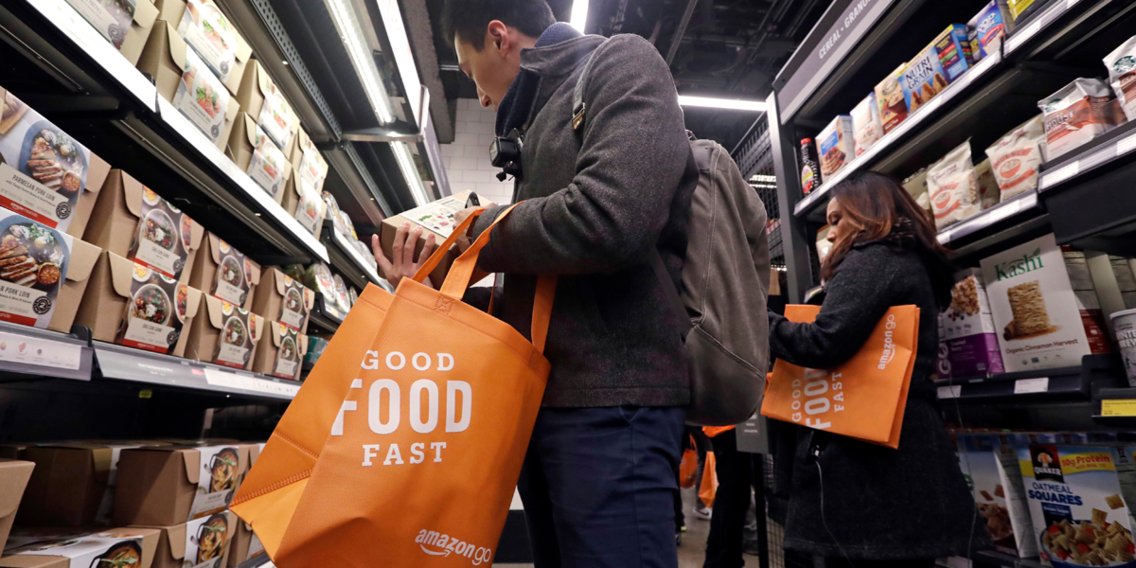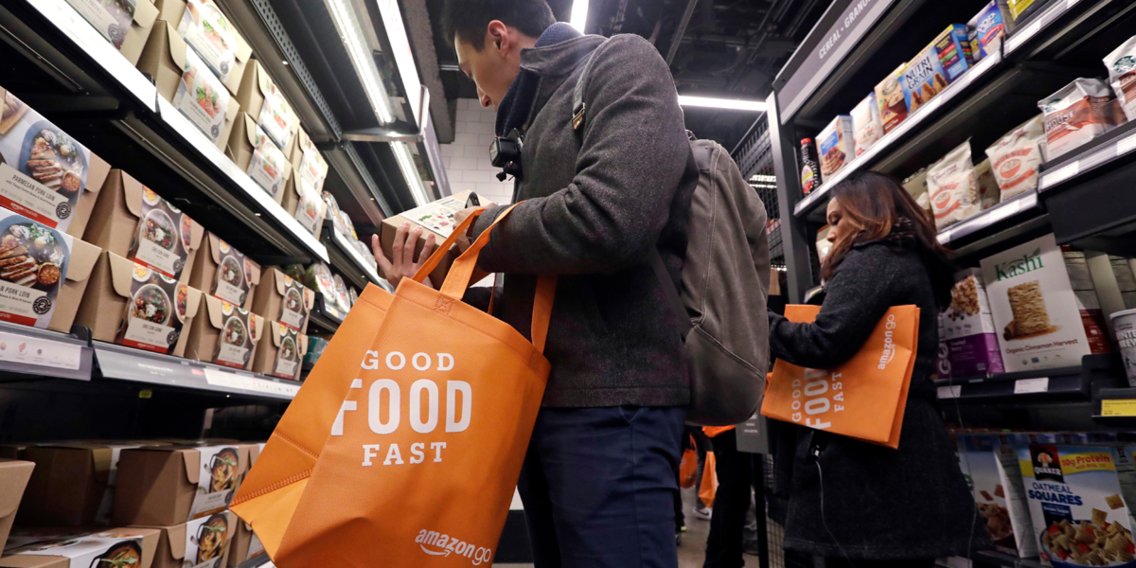
Amazon is planning to start accepting cash at its cashierless Amazon Go stores.
Last month, Amazon’s senior vice president of physical stores, Steve Kessel, told employees that Amazon Go stores will have “additional payment mechanisms” in the future, CNBC first reported on Wednesday.
An Amazon spokesperson confirmed to Business Insider that the new mechanisms would include paying with cash.
According to CNBC’s Eugene Kim, Kessel’s announcement was in response to a question about “discrimination and elitism” at Amazon Go stores, which do not have cashiers.
“The whole point of Amazon Go, the chain’s tech-powered cashierless convenience store, is that there’s no need to pay a cashier,” Business Insider’s Dennis Green reported in March. “Customers can just swipe their app and go. The store’s cameras and sensors will see what you take and charge you accordingly.”
Amazon has opened 10 Amazon Go stores across the US. Bloomberg reported in 2018 that the company hopes to open up to 3,000 cashierless Amazon Go stores by 2021.
Cashless stores have become increasingly trendy, with fast-casual chains such as Sweetgreen and Dig Inn requiring customers to pay via card or app. According to executives, banning cash can speed up service, protect against robberies, and allow companies to collect more customer data.
However, critics say that cashless stores effectively exclude millions of potential customers who do not have a bank account. 8.4 million households, or roughly 6.5% of all households in America, were “unbanked” in 2017, according to the Federal Deposit Insurance Corporation.
Amazon’s apparent change of heart comes as more states and cities consider banning cashless stores. Massachusetts, Philadelphia, and New Jersey already require stores to accept cash payment, and New York City and San Francisco are considering similar measures.
Amazon had reportedly expressed concerns about plans to ban cashless stores in Philadelphia, telling the city’s department of commerce “several times” that it would not open an Amazon Go store in the city if the law passed, according to the Philadelphia Inquirer.

